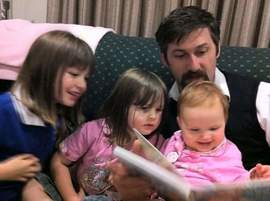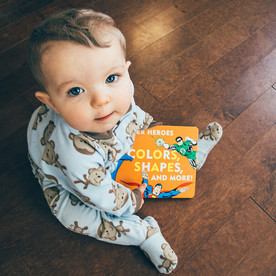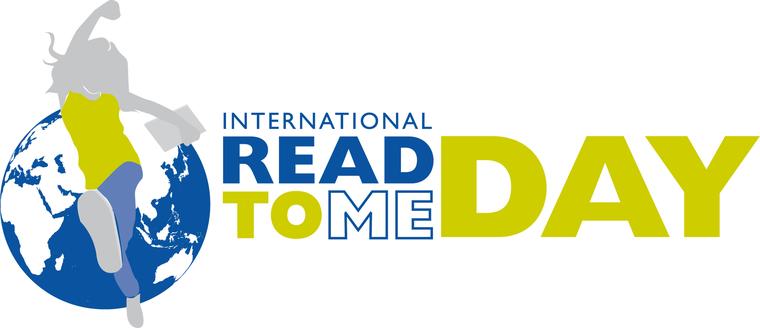 Many of us take reading for granted. But for so many people, adults and children alike, reading is difficult. Another problem that so many children face is they have no-one to read to them, ever. It is a sad fact, but a fact nonetheless. Emma Mactaggart, speaker, author, publisher and passionate literacy advocate, has created International Read to Me! Day to be held on March 19th. International Read to Me! Day? What is that? In a recent post on Facebook, someone actually said, “Read to me! Isn’t that everyday?” If only that were true for every child. Emma Mactaggart saw that not every child is read to and how it is contributing to our falling literacy rates. She is now sounding the call for all those who want to give a child a voice to ask someone to read to them. She is a great promoter of “giving children the megaphone they need so they demand to be read to regularly!” The follow is an extract from an interview by Tony Briscoe from Valley FM. “Literacy is a gateway skill for us all. If you can’t read you get left behind in so many ways. This has a major impact on your opportunities in life. Reading and writing create social connection and this creates opportunity for all; this is key to Australia’s future success. We can all help children with their reading and I want to encourage children to ask you to help through dedicating a special day to this all round the world” – Emma Mactaggart" She wants to change the dynamic and empower children to ask for more support, not just from their birth family but also from their community. Marking a day when kids can ask to be read to is a key part of this strategy. A recent study analysed by researchers at the Melbourne Institute of Applied Economics and Social Research backs up Emma’s belief about the the power of being read to. Professor Guyonne Kalb wanted to test whether it was the reading itself that lead to better outcomes or if there were other factors. “No matter what else we tested for the results show that being read to is the single most important factor. Children of 4 – 5 years old who are read to 3-4 times a week have reading ages 6 months ahead of children read to once or twice a week. Reading to children nearly every day almost doubles their progress to one year ahead of the group.” The research is shocking. The Australian Bureau of Statistics 2006 Adult Literacy and Life Skills Survey (ALLS) revealed that Australian language, literacy and numeracy levels have shown little improvement in the decade since the 1996 International Adult Literacy Survey (IALS). Approximately 7 million Australian adults (46 per cent) had literacy scores below the minimum level needed to function fully in life and work and 7.9 million (53 per cent) had numeracy scores below the minimum needed.’  Now you can’t argue with statistics like those, now can you? In a recent blog post I interviewed a family. The mother and the two oldest daughters have Dyslexia. Please read the whole post here. In the interview, the mother, Leanne, said there have been some definite strategies that have helped her children. Number one was the girl’s dad, Stephen, has read to all the girls since they were babies, every night. Two, she has made sure that she has surrounded the girls with books of all types since they were babies. I have friends that are teachers. I just shake my head when they tell me what children say to them. “I don’t own a book.” “There are no books in our house.” For me it would be unheard of and incomprehensible. Though, I myself have dyslexia, and so does my daughter, we love books of all types and are always reading. We read to each other nearly everyday, and my daughter is nearly 21. I've read to her since she was a baby and we just never gave it up. Admittedly, these days they are mainly picture books. As an emerging picture book author, I need to 'read in the genre I want to write.' Besides that, they are so much fun. Though, we have mixed it up and got our hands onto a Shakespearean version of Star Wars. According to Emma, “Why we may not read to our children – parents are human too: • Exhausted parents / carers • Inability to read themselves or no books available • Too busy with the night-time routine • Shift workers – and mismatched routines • Other family members demanding what little time is spare This is by no means a definitive list, but it is realistic. The most dedicated parents / carers in the world will not have a 100% reading rate – routines buckle, time constrains are a truism, and sometimes, you just don’t feel like it! If a child comes to school and says: ‘Everyone was too tired’ ‘We don’t have any books at home’ ‘It was so busy at home last night’ ‘My father works nights’ ‘My baby brother was crying’ Then it is simply the way of the world and this merely identifies a gap to be filled the following day. After all, it takes a village to raise a child!” IT TAKES A VILLAGE TO RAISE A CHILD 33% of children ages 6 to 17 say their class has a designated time during the school day to read independently, but only 17% do this every or almost every school day. (ids and Family Reading Report, 5th Edition, Scholastic) AND IT TAKES A CHILD TO INSPIRE A VILLAGE 83% of children of all ages surveyed say they loved or liked a lot being read aloud to and 40% of kids ages 6 to 11 whose parents have stopped reading aloud to them say they wish their parents had continued. (Kids and Family Reading Report, 5th Edition, Scholastic) Empowering Children to take the initiative… We want children to understand they can ask to be read to. Picture this: a classroom teacher asks ‘Who read to you last night?’ and there are various responses from classmates, ‘My mother / my brother / my aunt / the lady next door / no-one!’ The teacher can then identify those children who may have their reading buddy (a senior) / a school volunteer to visit them in the classroom during the day to read to them. So what will you be doing this Saturday to support International Read to Me! Day? Some ideas are:
Together, we can make a difference For more information: http://www.readtomeday.com/ Quotes from http://www.valleyfm.com/blog/international/ and http://www.childwrites.com.au/childwrites-international-read-to-me-day Please feel free to share what you are doing this Saturday, or any day for that matter, to empower children and make sure that they are being read to today.
0 Comments
Your comment will be posted after it is approved.
Leave a Reply. |
AuthorOn my blog you will find: Categories
All
Click to set custom HTML
|
||||||


 RSS Feed
RSS Feed